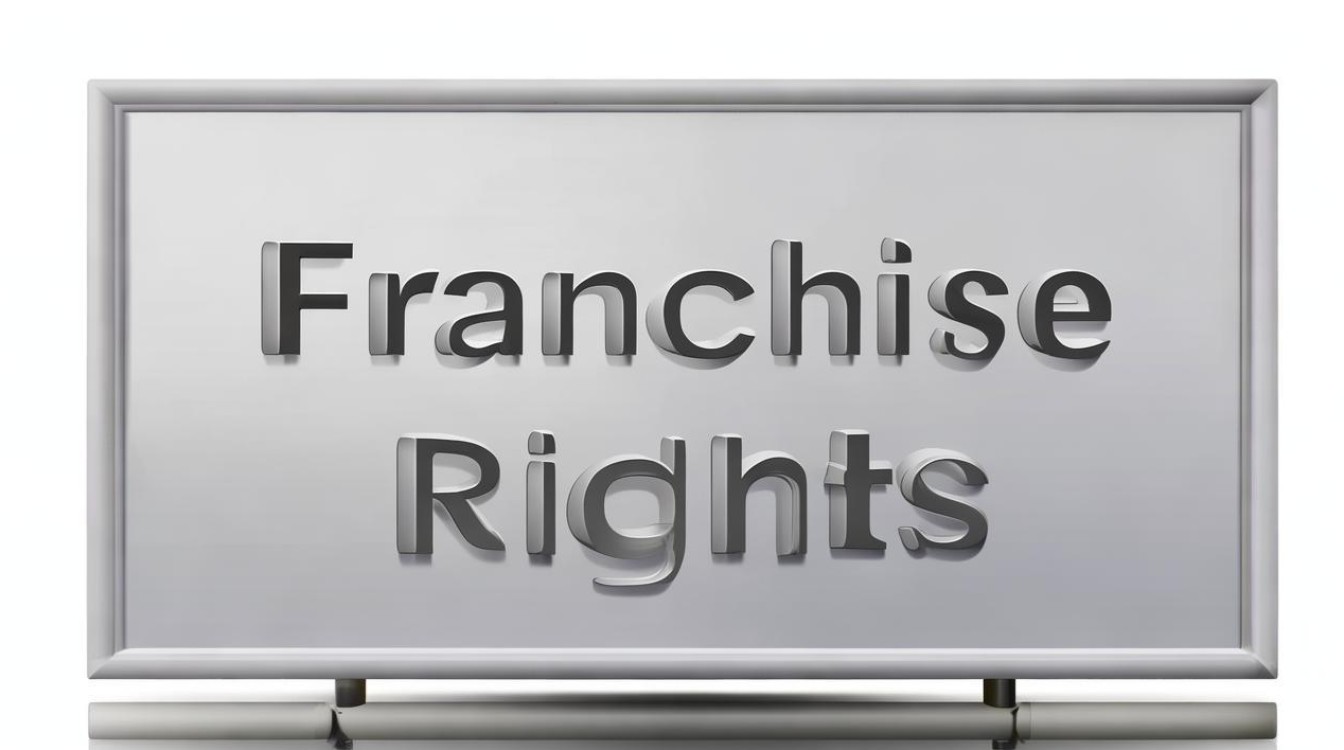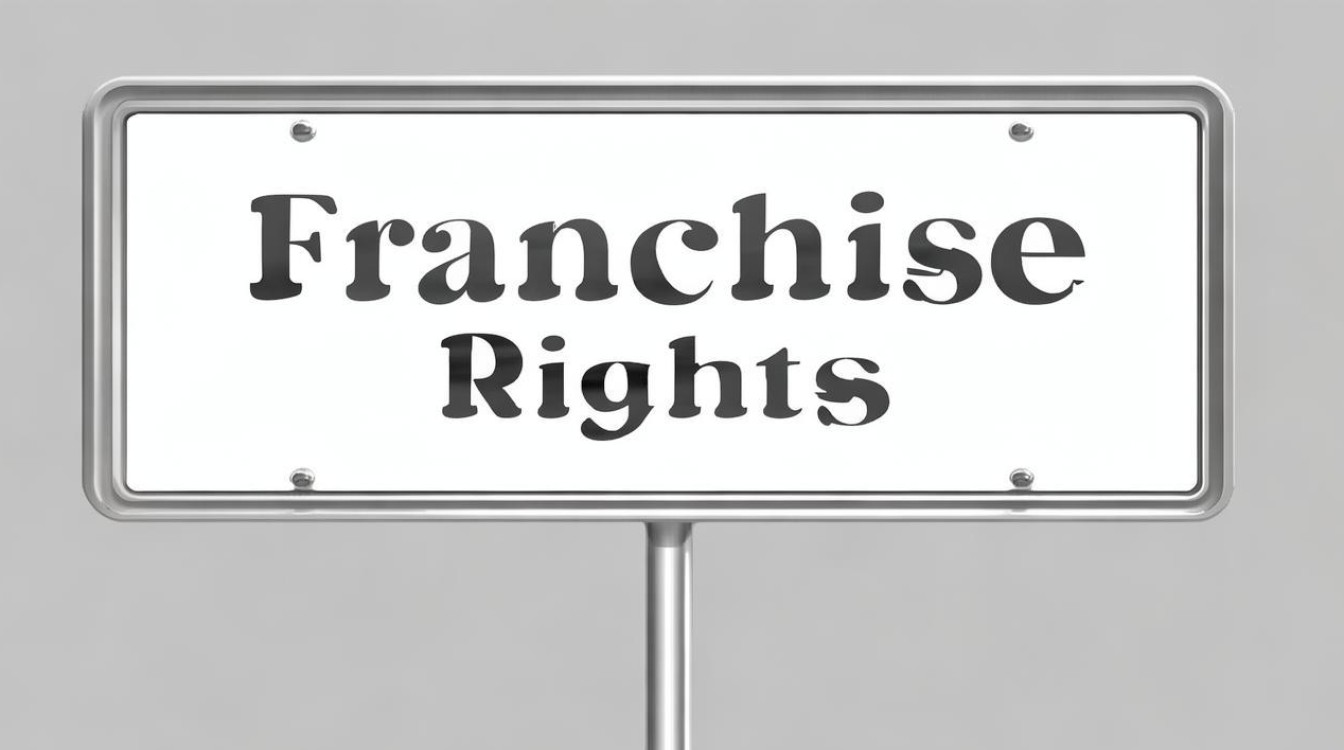特许经营权作为一种商业模式,在全球范围内广泛应用,了解其英文表达不仅有助于国际交流,还能帮助创业者、投资者和法律从业者更准确地理解相关概念,本文将详细介绍特许经营权的英文单词及其用法,并探讨相关术语和应用场景。

特许经营权的英文表达
特许经营权在英文中最常见的表达是 "franchise",这个词既可以作为名词,表示特许经营权本身,也可以作为动词,表示授予或获得特许经营权的行为。
-
名词用法:
- "McDonald's operates under a franchise model."
- "She owns a franchise of a popular coffee chain."
-
动词用法:
- "The company franchises its brand to independent operators."
- "He decided to franchise his business to expand nationally."
除了 "franchise",特许经营权还可以用 "franchising" 表示,强调特许经营的体系或过程。
- "Franchising is a popular way to expand a business quickly."
- "The franchising agreement outlines the rights and obligations of both parties."
相关术语和短语
在商业和法律文件中,特许经营权涉及多个相关术语,以下是一些常见的英文表达:
-
Franchisor(特许人):指授予特许经营权的公司或个人。
"The franchisor provides training and support to franchisees."
-
Franchisee(被特许人):指获得特许经营权的个人或企业。
"The franchisee must adhere to the franchisor's operating standards."
-
Franchise Agreement(特许经营协议):规定特许人和被特许人权利义务的法律文件。
"Before signing the franchise agreement, consult a lawyer."

-
Royalty Fee(特许权使用费):被特许人向特许人支付的持续费用,通常基于销售额的一定比例。
"The franchisee pays a 5% royalty fee monthly."
-
Initial Franchise Fee(初始特许经营费):被特许人加盟时一次性支付的费用。
"The initial franchise fee for this brand is $50,000."
-
Master Franchise(区域特许经营权):允许被特许人在特定区域发展多个加盟店的权利。
"He acquired the master franchise for the brand in Southeast Asia."
特许经营权的应用场景
特许经营权广泛应用于餐饮、零售、酒店、教育等行业,以下是一些典型行业的英文表达:
-
Fast Food Franchise(快餐特许经营):
"KFC and Subway are well-known fast food franchises."
-
Retail Franchise(零售特许经营):
"7-Eleven is a global retail franchise with thousands of locations."

-
Hotel Franchise(酒店特许经营):
"Holiday Inn operates under a franchise model in many countries."
-
Education Franchise(教育特许经营):
"Kumon is a successful education franchise focusing on math and reading."
特许经营权的法律和商业考量
在涉及特许经营权时,法律和商业因素至关重要,以下是几个关键点:
-
Legal Compliance(法律合规):
- 不同国家对特许经营的法律要求不同,美国联邦贸易委员会(FTC)要求特许人提供 Franchise Disclosure Document (FDD),而中国则有《商业特许经营管理条例》。
-
Brand Standards(品牌标准):
- 特许人通常要求被特许人严格遵守品牌标准,以确保一致性。
- "The franchisee must use approved suppliers to maintain quality."
-
Financial Viability(财务可行性):
- 被特许人需评估初始投资、运营成本和预期回报。
- "A detailed business plan helps assess the franchise's profitability."
-
Market Research(市场调研):
- 选择特许经营品牌前,需分析目标市场的需求和竞争情况。
- "Conducting market research reduces the risk of franchise failure."
特许经营权的优缺点
优点:
- Established Brand(成熟品牌):加盟已有品牌可降低市场推广难度。
- Proven Business Model(已验证的商业模式):特许人提供成熟的运营体系,减少试错成本。
- Training and Support(培训和支持):特许人通常提供培训、营销和供应链支持。
缺点:
- High Initial Cost(高初始成本):加盟费和设备投资可能较高。
- Limited Flexibility(灵活性受限):被特许人需遵守特许人的规定,自主决策空间较小。
- Ongoing Fees(持续费用):特许权使用费和广告分摊费可能影响利润。
如何选择合适的特许经营权
-
Assess Personal Interests(评估个人兴趣):
选择与自身兴趣和技能匹配的行业,能提高成功概率。

-
Research the Franchisor(调研特许人):
查阅特许人的财务稳定性、加盟店成功率和诉讼历史。
-
Talk to Existing Franchisees(与现有被特许人交流):
直接沟通可获取真实反馈,了解日常运营挑战。
-
Consult Professionals(咨询专业人士):
律师和财务顾问能帮助审核合同和评估投资回报。
特许经营权的英文表达和相关知识对国际商业活动至关重要,无论是创业者还是投资者,掌握这些术语都能提升决策效率和沟通效果。



